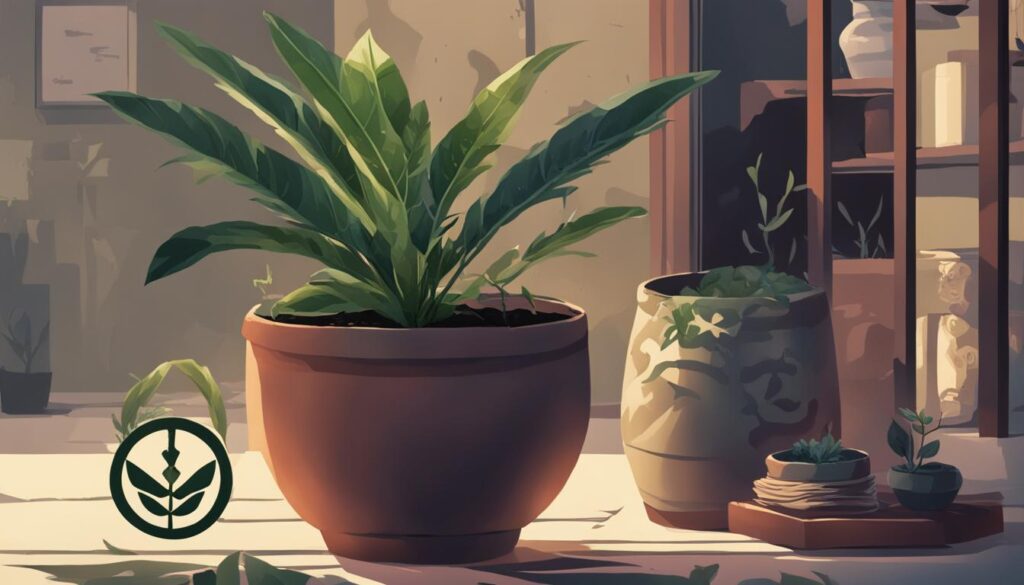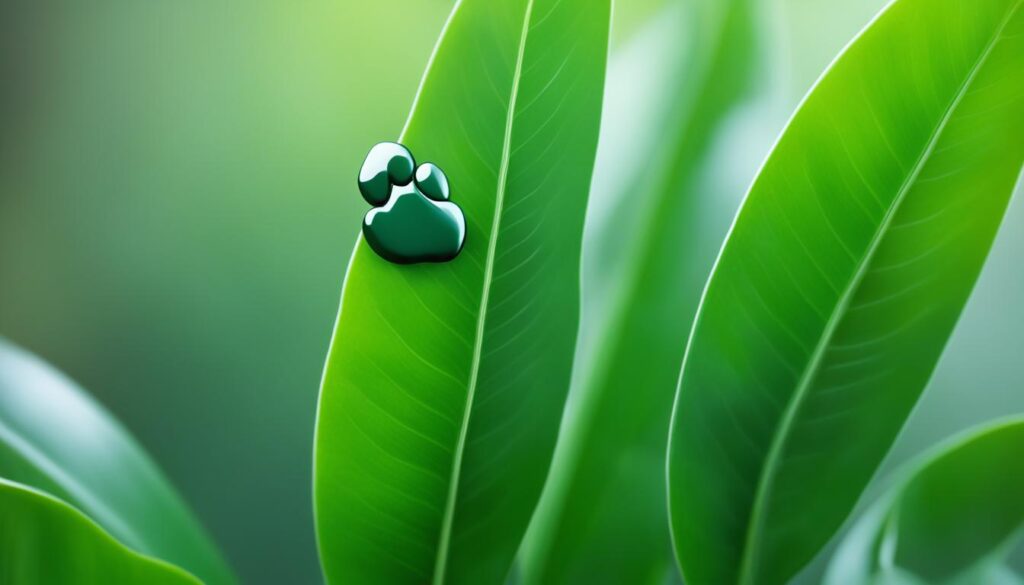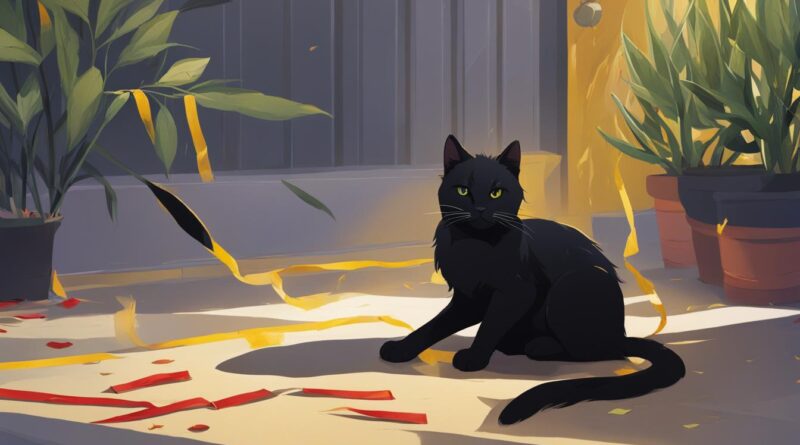ZZ Plants and Cat Safety: Toxicity Facts
ZZ plants are popular indoor plants known for their resilience and ability to thrive in low-light conditions. They have become a common choice for plant lovers looking to add some greenery to their homes.
However, if you have a furry friend in your household, such as a cat, it’s essential to be aware of the potential risks that ZZ plants can pose. While they are not highly toxic, ZZ plants contain calcium oxalate, which can cause mild irritation and discomfort if ingested or touched by cats.
As responsible pet owners, understanding the level of toxicity and taking precautions to keep our cats safe is paramount. In this article, we will explore the toxicity of ZZ plants, their potential harmful effects on cats, and how to handle exposure if it occurs.
Key Takeaways:
- ZZ plants contain calcium oxalate, which can cause mild discomfort if ingested or touched by cats.
- While not highly toxic, ZZ plant exposure can lead to symptoms such as diarrhea, vomiting, and skin irritation in cats.
- If your cat comes into contact with a ZZ plant, check its mouth for any residue and provide plenty of water to drink.
- Consider opting for cat-friendly alternatives if you’re concerned about the potential risks of ZZ plants.
- Ensure a safe environment for both your plants and beloved feline companions by understanding the level of toxicity and taking appropriate measures.
ZZ Plant Toxicity: How Poisonous Is It?
When it comes to ZZ plants, understanding their level of toxicity is important, especially if you have cats, dogs, or small children in your home. While ZZ plants are not considered highly poisonous, they do possess certain elements that can cause irritation and discomfort if ingested or touched.
The main culprit behind the toxicity of ZZ plants is a compound called calcium oxalate. This crystalline salt is found not only in ZZ plants, but also in many other common houseplants. While calcium oxalate is not inherently poisonous, it can still cause issues if it comes into contact with the skin or mucous membranes, leading to irritation and mild discomfort.
If ingested, ZZ plants can also cause digestive issues and potentially contribute to the formation of kidney stones. However, it’s important to note that ZZ plants are usually only mildly toxic, and fatalities are extremely rare.
Despite their mild toxicity, ZZ plants are still a popular choice for indoor greenery, thanks to their low-maintenance nature and striking appearance. Just be sure to keep them out of reach of curious pets and children to minimize the risk of any potential adverse effects.
“While ZZ plants are not considered highly poisonous, they do possess certain elements that can cause irritation and discomfort if ingested or touched.”
To provide a visual representation of the toxicity levels, here’s a table comparing the levels of toxicity of different houseplants:
| Plant | Toxicity Level |
|---|---|
| ZZ Plant | Mild |
| Dieffenbachia | Moderate to Severe |
| Lilies (all varieties) | Highly Toxic |
| Pothos | Mild |
As you can see, compared to other common houseplants, ZZ plants fall into the mild toxicity category. However, it’s always recommended to exercise caution and keep them away from pets or small children who may be prone to exploring and chewing on plants.

With this knowledge in mind, you can make an informed decision about whether to have ZZ plants in your home. If you still want to enjoy indoor greenery without the potential risks, there are plenty of cat-friendly alternatives available. Check out Section 5 for a list of safe, non-toxic plants that you can choose instead.
ZZ Plant Toxicity to Pets
When it comes to ZZ plants, pet owners should exercise caution, especially if they have cats. These popular indoor plants can be toxic to pets, causing harmful effects if ingested or even if they come into contact with the sap.
The sap of the ZZ plant contains substances that can cause burning and irritation if it comes into contact with a pet’s mouth or skin. This can lead to discomfort and distress for your furry friend. Ingesting the plant can result in a range of symptoms, including diarrhea, vomiting, and digestive discomfort. Although these symptoms are generally not life-threatening, they can still be unpleasant for your pet and may require veterinary attention.
To protect your pets from the harmful effects of ZZ plant toxicity, it’s crucial to keep these plants out of their reach. Place them in areas where your pets cannot access them, such as high shelves or hanging baskets. Additionally, consider providing alternative cat-friendly plants for your feline companions to safely enjoy.
Understanding the potential risks and taking preventive measures can help create a safe environment for both your pets and your plants. If you suspect that your pet has been exposed to a ZZ plant or is displaying any unusual symptoms, it’s best to consult with a veterinarian for proper guidance and care.
ZZ Plant Toxicity Symptoms in Pets:
- Diarrhea
- Vomiting
- Digestive discomfort
Tips to Protect Your Pets:
- Keep ZZ plants out of your pet’s reach
- Consider cat-friendly alternatives
- Consult a veterinarian if you suspect exposure or notice any concerning symptoms
| Plant Parent’s Guide | ZZ Plant Toxicity to Pets |
|---|---|
| Plant Name | ZZ Plant |
| Scientific Name | Zamioculcas zamiifolia |
| Potential Harmful Effects | Burning and irritation of mouth and skin, diarrhea, vomiting, digestive discomfort |
| Preventive Measures | Keep out of pet’s reach, provide cat-friendly alternatives, consult a veterinarian |
Handling ZZ Plant Exposure in Pets
If your pet has been exposed to a ZZ plant, prompt action is crucial to minimize any potential effects. Follow these steps to handle ZZ plant exposure in pets:
- Check the pet’s mouth: Carefully examine your pet’s mouth for any plant residue. If you find any, gently remove it using a cloth or your fingers, being cautious not to harm your pet.
- Wipe the mouth: Use a wet cloth to wipe your pet’s mouth, removing any remaining plant material and reducing the likelihood of further ingestion or irritation.
- Provide water: Ensure your pet stays hydrated by offering them plenty of fresh drinking water. Increased water consumption can help dilute any toxins that may have been ingested.
- Monitor symptoms: Keep a close eye on your pet’s behavior and look for any signs of distress or unusual symptoms. If you notice severe symptoms or have any concerns, it’s crucial to seek professional veterinary assistance immediately.

“Prompt action is crucial to minimize any potential effects of ZZ plant exposure on pets.”
Remember, the severity of ZZ plant toxicity can vary depending on the pet’s size, health, and the amount of exposure. While most cases of ZZ plant exposure are not life-threatening, it’s always better to be cautious and seek professional advice if you have any concerns about your pet’s well-being.
Cat-Friendly Alternatives to ZZ Plants
If you’re concerned about the potential toxicity of ZZ plants for cats, there are many cat-friendly alternatives available. These plants not only add beauty and greenery to your home but also ensure the safety of your feline friend. Here are some safe and non-toxic options to consider:
- Cat Palm: Also known as Chamaedorea elegans, this palm is safe for cats and can thrive in both bright and low-light conditions.
- Guzmania: With its vibrant and colorful blooms, Guzmania adds a touch of tropical elegance to any space. It is safe for cats to be around.
- Boston Fern: Known for its lush foliage, the Boston Fern is not only safe for cats but also helps improve indoor air quality.
- Spider Plant: Chlorophytum comosum, or Spider Plant, is a popular choice for cat owners as it is non-toxic and easy to care for.
- Money Tree: Pachira aquatica, commonly known as the Money Tree, is believed to bring good luck and is safe for cats when ingested in small amounts.
- Snake Plants: Sansevieria, or Snake Plants, are not only visually striking but also great air purifiers. They are safe for cats as well.
These cat-friendly alternatives provide a variety of options for every plant lover. Remember to carefully research and choose plants that are suitable for your specific home environment and the needs of your cat. By opting for these non-toxic alternatives, you can enjoy the benefits of indoor plants while ensuring the well-being of your beloved feline companion.
Conclusion
ZZ plants are a popular choice for indoor plants due to their resilience and ability to thrive in low-light conditions. While they are not highly toxic to cats, it’s important to be aware of the potential risks they pose. ZZ plants contain calcium oxalate, which can cause mild irritation and discomfort if ingested or touched by cats.
To ensure the safety and well-being of your feline companions, it is recommended to take precautions when keeping ZZ plants in your home. Placing them in areas that are inaccessible to cats, such as high shelves or hanging baskets, can help prevent accidental contact. Additionally, regularly inspecting the plants for any fallen leaves or debris can minimize the risk of ingestion.
However, if you have concerns about the potential toxicity of ZZ plants, there are plenty of cat-friendly alternatives available. Plants such as cat palm, guzmania, Boston fern, spider plant, money tree, and snake plants are non-toxic to cats and can still provide beauty and greenery in your home. Choosing these alternatives can give you peace of mind and ensure the safety of your beloved pets.
In conclusion, while ZZ plants are not highly toxic to cats, it is important to prioritize their safety. Understanding the level of toxicity and taking appropriate measures, such as keeping ZZ plants out of reach and considering cat-friendly alternatives, can help create a safe environment for both your plants and your feline companions.
FAQ
Are ZZ plants toxic to cats?
While ZZ plants are not highly toxic to cats, they contain calcium oxalate which can cause mild irritation if ingested or touched.
What are the symptoms of ZZ plant toxicity in cats?
Ingesting ZZ plants can lead to symptoms such as diarrhea, vomiting, and digestive discomfort in cats.
How can I keep my cat safe from ZZ plants?
It’s important to keep ZZ plants out of the reach of pets to prevent any potential harm. Consider choosing cat-friendly alternatives instead.
What should I do if my cat is exposed to a ZZ plant?
If your cat has been exposed to a ZZ plant, check their mouth for any plant residue and wipe it away. Provide plenty of water to drink and consider contacting a veterinarian if there are severe symptoms or concerns.
What are some cat-friendly alternatives to ZZ plants?
Safe plant alternatives for cats include cat palm, guzmania, Boston fern, spider plant, money tree, and snake plants.

